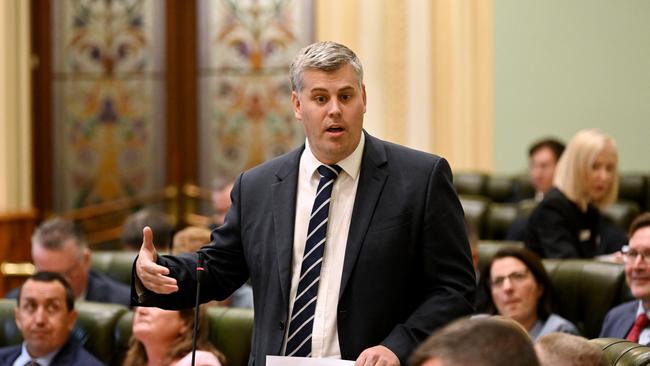Relaxed drug laws will include three strike system
New drug legislation, which will relax laws for those caught carrying a small quantity of heroin, cocaine or ice, has been introduced to parliament. VOTE IN OUR POLL
QLD News
Don't miss out on the headlines from QLD News. Followed categories will be added to My News.
The Palaszczuk government has introduced legislation to relax laws for those caught carrying a small quantity of drugs including of heroin, cocaine or ice.
Users will be given three chances for carrying recreational drugs before facing a criminal charge, according to a bill introduced to parliament on Tuesday afternoon, in a move Police Minister Mark Ryan said was “strongly supported” by senior cops.
The legislation, which will enact an expansion of the drug diversionary program, will “focus on a health-based response for … minor drugs offence involving a small quantity of any type of dangerous drug,” according to the bill’s explanatory notes.
Under the current program, the diversionary process only applies to cannabis but, if passed, this will also include ice, cocaine, heroin, fentanyl, ketamine and steroids.
FOLLOW TODAY’S PARLIAMENT BLOG HERE
Users carrying less than a gram will be given a warning on the first instance of being caught in possession, then be given an opportunity to participate in the diversionary program on the second and third instances.
If they are caught a fourth time, they will be issued a court notice to appear on a charge of possession but it is still unlikely the user will have a conviction recorded.

Mr Ryan said the expansion of the program was requested by the Queensland Police Service and brings the state into line with other jurisdictions, including Victoria, Tasmania, the Australian Capital Territory and South Australia.
“As Commissioner Katarina Carroll has said, ‘I’ve wanted this reform because research shows that if you divert people early to health and education services, they are less likely to reoffend’,” the Police Minister said when introducing the Bill.
He said the expansion of the program was not a relaxation of the “tough enforcement action in taking dangerous drugs off the streets”, but more served as an opportunity to enable officers to target drug manufacturers and traffickers.
“We know that one in six Australians have used an illicit drug in the last 12 months and that a small proportion will develop a substance abuse disorder,” Mr Ryan said.
“Sadly, those that do develop an addiction suffer the unfulfilled potential, poor health outcomes and broken relationships that so often accompany that struggle.
“The expanded police drug diversion program, proposed by the Queensland Police Service and established by this bill, will help to prevent people developing a substance abuse disorder.”





